Net neutrality on trial: judges hear lawsuits against FCC

The Federal Communications Commission finds itself in court today, as the hearing gets underway to determine the legality of net neutrality rules. A total of 10 lawsuits have been brought against the commission by a number of cable and telecoms companies.
Earlier in the year the FCC banned service providers from creating internet fast lanes that could have been used to give those willing to pay for it a faster service, or to offer certain types of traffic preferential treatment. This could be the hearing that decides once and for all whether the idea of treating all web traffic equally is a workable option.
Zuckerberg: we have a moral responsibility to those without internet access (and to kill game invites)
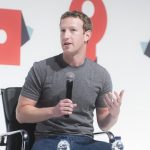
Facebook's Mark Zuckerberg took part in a Q&A session at the Indian Institute of Technology in Dehli, responding to queries ranging from the Internet.org project to Candy Crush notifications. Not for the first time, he found himself jumping to the defence of the program which aims to connect millions of people to the internet. He denied that the walled-garden of Internet.org went against the idea of net neutrality, but conceded that people had to "follow the basic rules of what Internet.org is".
He pointed out that existing net neutrality laws made exceptions for free services, but these loopholes have been described by critics as 'fatal'. In a wide-ranging talk, Zuckerberg also announced plans to kill one of the biggest irritants of the social network -- game invites for the likes of FarmVille and Candy Crush.
EU pushes forward with net neutrality plan, removal of roaming fees
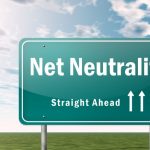
European Commissioner for Digital Economy and Society, Günther Hermann Oettinger, is set to meet with national ministers next Friday to try and end the deadlock between national ministers and MEPs on the subject of net neutrality.
Negotiations on the so-called Telco Package had ground to a halt on Tuesday night when national representatives from the Council and those from the European Parliament failed to compromise on net neutrality or roaming charges, The Register writes in a report.
Facebook launches Internet.org Platform and opens up to more developers

The aim behind Facebook's Internet.org program is to bring internet access to the wider world. While an undeniably praise-worthy venture, it came in for criticism for going against the principles of net neutrality.
Today the company launches the Internet.org Platform with a view to countering this criticism. The platform opens up Internet.org to more developers, giving them the chance to bring "free basic services" to people around the world. There's also the promise of greater transparency.
Zuckerberg says Internet.org is not anti-net neutrality... but it is

A few days ago Mark Zuckerberg conducted a Q&A on Facebook. Despite tens of thousands of comments, very little of interest came out of the session -- he works 50-60 hours a week, likes Oculus (surprise, surprise), and he stands behind his Internet.org project which is providing internet access to people all over the world, including those in remote and developing locations. As is to be expected from a Q&A session, Zuckerberg also found that he had criticism levelled at him in addition to questions, including criticisms of his beloved Internet.org.
Some people pointed out that even in the US there is still a digital divide, while others complained that Internet.org goes against the principles of net neutrality. This obviously struck a nerve because the Facebook founder felt the need to defend the program and express his support for net neutrality. My colleague Manish Singh wrote about this, but is Zuckerberg right? Can Internet.org and net neutrality really live happily side by side?
Telcos still violating Net Neutrality in India -- fight back by sending your views to TRAI
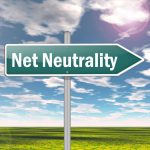
Late February, the Federal Communications Commission announced it would change the way the United States' internet service providers are regulated. It was a major victory for the net neutrality advocates. "The internet is the most powerful and pervasive platform on the planet", said FCC Tom Wheeler. "It's simply too important to be left without rules and without a referee on the field". But elsewhere in the world, things aren't as clear and fair yet. In India -- the world's most populous democracy -- leading telecom operators in the past couple of months have made a number of moves that violate the essence of net neutrality. But thankfully more people are becoming aware of the situation and have started to push back such motions. The good news is that you -- the people -- have a chance to fix it.
Airtel, India's largest telecom operator, has announced Airtel Zero, a platform through which it will offer users free access to select mobile apps and services. The operator said that with this move, it will provide marketers with tools to let them pay for their customers' data access charges to aforementioned apps. “Akin to the established concept of toll-free voice calling, Airtel Zero will allow everyone from big marketers to small-time application developers to make parts or their entire mobile app free for customers – thus reviving interest of dormant customers, attracting new potential users and increasing retention", Airtel said in a statement. "From startups to enterprises, it is an open marketing platform that empowers companies ranging from small businesses to large conglomerates with an equal opportunity to reach out to customers in India", it added.
The Net Neutrality mystery

My friend Andy Regitsky, whom I have known for more than 30 years, follows the FCC, blogs about them, and teaches courses on -- among other things -- how to read and understand their confusing orders. Andy knows more about the FCC than most of the people who work there and Andy says the new Net Neutrality order will probably not stand. I wonder if it was even meant to?
You can read Andy’s post here. He doesn’t specifically disagree with my analysis from a few days ago, but goes further to show some very specific legal and procedural problems with the order that could lead to it being killed in court or made moot by new legislation. It’s compelling: Andy is probably right.
Net Neutrality, Apple, and the future of TV

I’ve been hesitant to comment on the FCC’s proposed Net Neutrality rules until I could read them. You’ll recall the actual rules weren’t released at the time of the vote a couple weeks ago, just characterized this way and that for the press pending the eventual release of the actual order. Well it finally published the rules last week and I’ve since made my way through all 400+ pages (no executive summary commenting for me). And while there are no big surprises -- much less smoking guns -- in the FCC report, I think that taken along with this week’s Wall Street Journal story about an Apple over-the-top (OTT) video service the trend is clear that the days of traditional cable TV are numbered.
What booms through the FCC document is how much it’s written in response to the Commission’s loss last year in Verizon Communications Inc. v. FCC. Most of the more than 1,000 footnotes in the order refer to the legal defeat and place the FCC’s current position in that legal context. FCC lawyers have this time really done their homework, suggesting that it will be difficult for cable interests to win like they did last year.
FCC votes in favor of Net Neutrality... just

The Net Neutrality debate has been rumbling on for quite some time now, but today something of a milestone has been reached. After the campaign gained the support of President Obama, Twitter, and many others, today was the Federal Communications Commission vote on a number of proposals put forward by chairman Tom Wheeler.
It is a victory for Net Neutrality and a great step towards ensuring that the internet remain open and free from controls by companies or government. The policy states, among other things, that ISPs may not charge for prioritization of web traffic. The vote was far from being a landslide. Two Republicans opposed to the policy changes kept the result to a 3-2 vote in favor of the proposals.
Twitter lends its support to Net Neutrality campaign
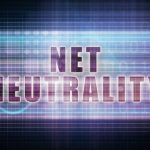
Many prominent groups and figures have given their backing to the fight for net neutrality. Today Twitter reveals why it supports the proposals put forward by the FCC chairman Tom Wheeler, just a few days ahead of a vote that will decide whether they will be adopted by the FCC. The aim is to "protect the open Internet as a place for innovation and free expression".
Twitter's public policy manager, Will Carty, says that protecting the open architecture of the internet is essential for the US to remain competitive and to allow freedom of speech. He says that providing a voice to those who would not otherwise have a platform is at the heart of Twitter, and this is just one of the reasons for supporting the net neutrality proposals.
Europe votes in favor of splitting up Google and other online companies

Members of the European Parliament (MEPs) have voted overwhelmingly in favor of breaking up big online companies like Google. While Google is not specifically mentioned, the MEPs aim of "unbundling search engines from other commercial services" to increase competition would clearly impact on the search giant if the resolution is approved by the European Commission.
It's all part of a bid to not help the growth of the EU's digital single market, but also to help boost competitiveness. All very reminiscent of the anti-trust lawsuits that have plagued Microsoft. The vote itself was fairly decisive. 384 voted in favor of the proposed resolution, 174 against, and 56 abstained from voting.
EFF joins dozens of groups to create global coalition to fight for net neutrality

The net neutrality debate has been rumbling on for some time now. Barack Obama even waded into things recently by giving his backing to campaigns that suggest all web traffic should be treated equally. But the US president is far from being the only big name speaking out against the two-tier internet that some providers would like to see created.
Now the Electronic Frontier Foundation (EFF) -- a group involved in many online campaigns and whose tagline is "defending your rights in the digital world" -- is joining forces with other equality advocates, including Greenpeace, to create a global coalition fighting for net neutrality. The latest campaign is a concerted effort to ensure that the internet is not transformed into something that delivers a poorer service to certain customers.
Obama enters net neutrality debate with four rules for a free and open internet

The net neutrality debate has been raging for some time and Barack Obama has stepped into the fray, voicing his support for a free and open internet. More than this, the president is calling for broadband to be reclassified under Title II of the Telecommunications Act which would give the FCC greater powers of regulation. His statement has come as bad news for cable companies who have expressed a desire to create a two-tiered internet.
But while some providers have suggested that they would like to be able to offer a faster service to customers willing and able to pay more money each month, Obama is calling for a largely unfettered internet. As well as eliminating the idea of fast lanes, he calls for no blocking of legal content, no throttling, and greater ISP transparency.
Porn sites join forces with Reddit, Mozilla, and more in net neutrality protest

In one of the strangest joining of forces imaginable, Reddit (of recent Fappening censorship fame), Mozilla (the browser folks) and other well-known names are teaming up with porn sites. The net neutrality debacle is one that has been rumbling on for some time now as more and more ISPs reveal plans to provide faster internet access to those willing -- or able -- to pay more. This creation of a two-tier internet is something that has been met with disgust from many quarters, including lots of big online names.
Tomorrow, 10 September, the likes of Pornhub and Redtube will join Etsy, FourSquare, KickStarter and more in a day of protest.
Vimeo takes on FCC's proposed net neutrality legislation
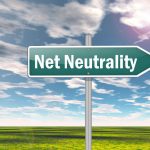
The FCC is currently taking public comments on it proposed changes to net neutrality. The law, if passed, would create a two-tier system where ISPs would be able to charge a premium to certain companies, such as Netflix or YouTube, in order to prioritize traffic. Those who do not pay, or startups that simply can not afford to, would face the possibility of being slowed down.
Many tech companies have, not surprisingly, spoken out against this possible change in legislation. The latest is video streaming service Vimeo -- a company that would likely be affected by the new law.
Recent Headlines
Most Commented Stories
BetaNews, your source for breaking tech news, reviews, and in-depth reporting since 1998.
Regional iGaming Content
© 1998-2025 BetaNews, Inc. All Rights Reserved. About Us - Privacy Policy - Cookie Policy - Sitemap.